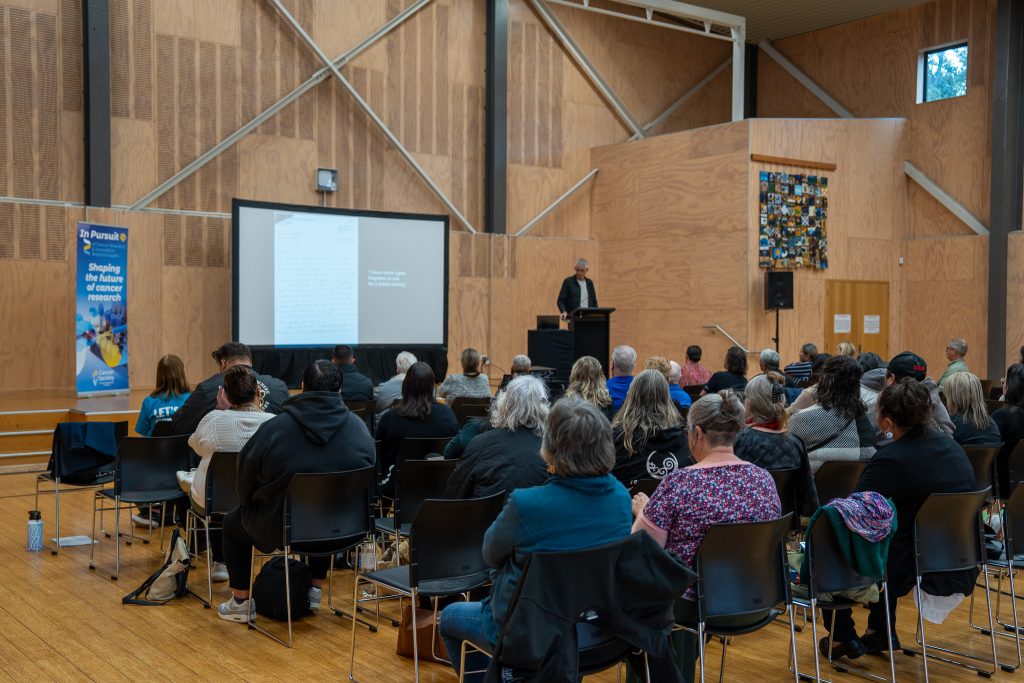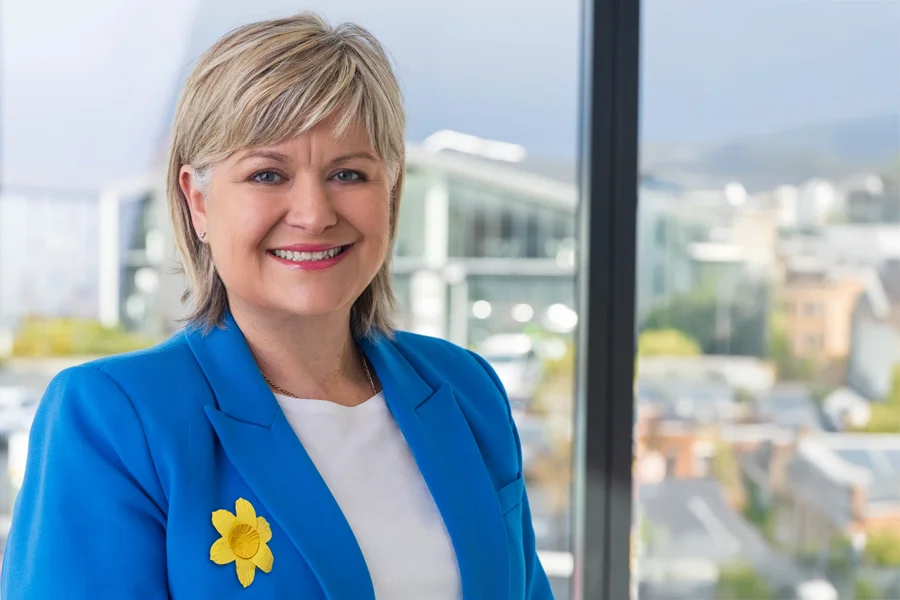
Ka Mua Ka Muri Symposium
26 March 2025
Take advantage of the testing facilities available and present early was the advice for Māori at the “Ka Mua Ka Muri” – Walking Backwards Into The Future Cancer Educational Symposium.
The symposium was organized by Cancer Society Southern to address the impact of cancer on Māori and Pasifika.
Professor Parry Guilford and Dr Scott Babington were keynote speakers at the event and, with statistics showing Māori were still lagging behind in cancer outcomes, they urged participants to present at their GP early if they had any concerns and go back or find another GP or nurse for a second opinion, if they believed their concerns had not been addressed. They said this was good advice for everyone.
“The sooner you present, the better,” Dr Babington said. “A small cancer is much easier to treat, and the treatment will provide better outcomes. Don’t be complacent. If you are concerned about anything, go to your GP straight away.
“It probably won’t be cancer, but if it is, getting it early is essential. Many cancers are treatable if they are caught early.”
Professor Guilford is developing a new non-invasive blood test to detect colorectal cancers early. Colorectal cancers are one of the most common cancers in New Zealand. The test works by identifying the DNA of cancer tumours that is circulating in the blood.
He said the test was inexpensive and could be conducted anywhere, meaning testing could be done in a community centre, the marae or in your GP’s office, which increased accessibility.
The test is still going through trials and Professor Guilford, rather than centralising the trials is bringing them to the community.
‘This is a community-based solution,’ he said. ‘In the next few months, we will be asking communities to get involved and be part of the trial. I would suggest you ask your GP and make yourselves available, especially if you have any of the symptoms or have genetic factors.
Professor Guilford said the test allowed those who were suffering from more advanced disease to be treated more quickly which was especially important with the long waiting lists for colonoscopies.
Professor Guilford also researched the genetic mutation in the CDH1 gene, which can cause stomach cancer. The mutation particularly affects Māori, and he urged people to be assessed especially if there was a family history of the cancer or they had any symptoms. He said the first step to getting tested was to approach your GP who could then refer you to the genetics company.
Toni Biddle, Tumu Whakarae (CEO) of Te Mātāpuna Hauora , opened the afternoon session. Her mission is to enhance the health and wellbeing of whānau across the community and is known for her determination to improve health outcomes for whānau.
She guided participants through steps to empower them to improve their and their families’ health journeys.
Organiser Lisia Ratima-Livesley said the aim of the symposium was to provide whānau with a comprehensive understanding of all cancers and its impact on Māori and Pasifika communities.
She also wanted to equip whānau with practical tools and strategies for supporting whanau through cancer diagnosis, treatment, and recovery.
Donate NOW


